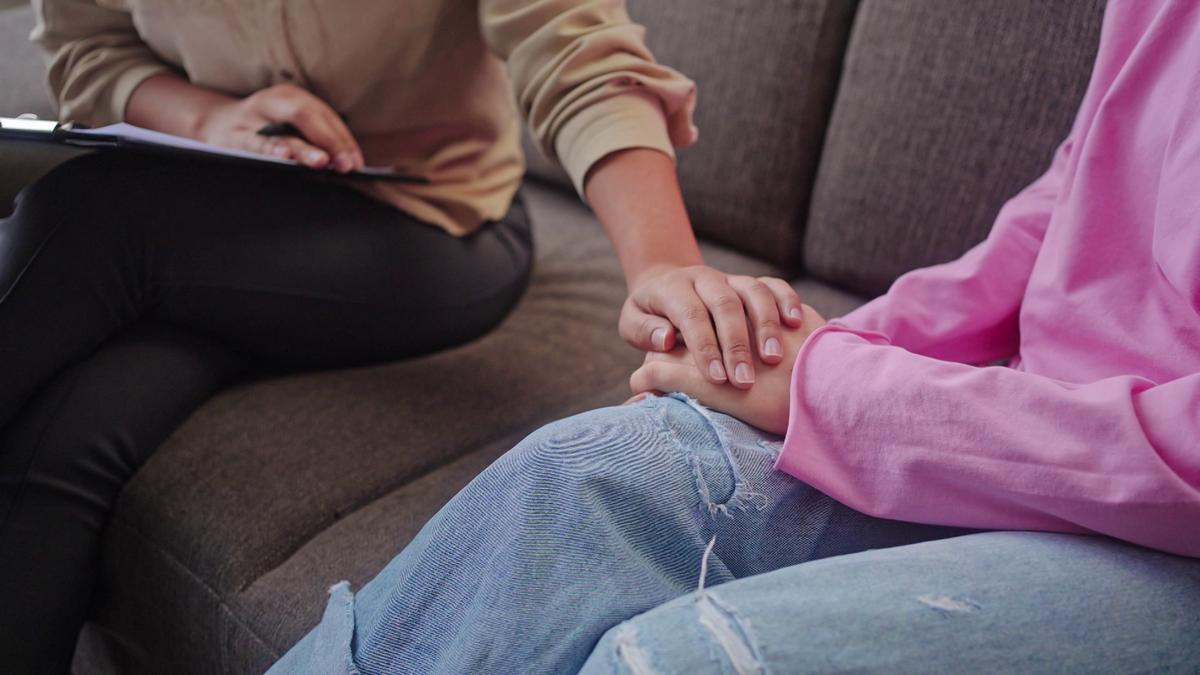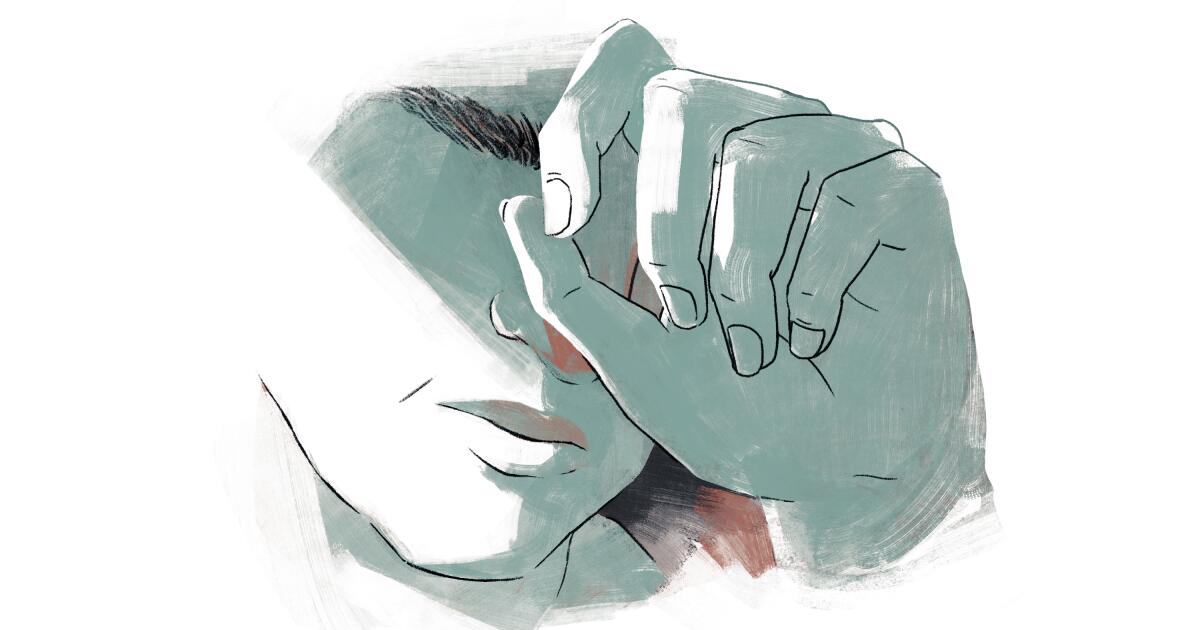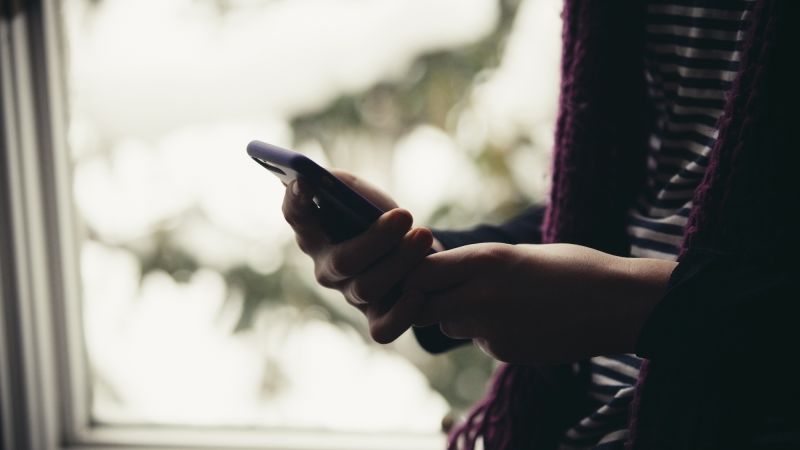Anxiety remedies show persistence even after therapy, Massachusetts study finds

Feeling overwhelmed like you can’t handle it? Struggling with anxiety is not uncommon and millions of people do. But a new study says most people are dealing with anxiety all wrong and the change can change your life. New research shows that many people have the wrong mindset when it comes to dealing with anxiety and the change that can make a difference. I’ve had anxiety for as long as I can remember,” said Jennifer Kearney, a local mom juggling a 1-year-old son and a new role at work. “It’s been that gnawing feeling, the tightness in the chest, some of that dizziness, shortness of breath.” For Kearney, it all came to a head in 2013 when she was running the Boston Marathon. “There was a guy, a runner, who had his medal and his plaque walking towards us and he was white as a ghost,” she recalled. “He goes, ‘There were bombs. The race is over.'” Her family was there that day, her parents were also at the finish line. She said it took hours to make sure everyone was okay.” “That’s when a lot of my anxiety really started to leave me,” Kearney said. “Finally, there was a voice of small that kept getting stronger and stronger until I became to say aloud: ‘I am not well. I’m not good. And I need someone to help me.” “She started therapy, learning new tools to help control her anxiety. When the pandemic hit, she feared that what she calls “the tornado in her head” would strike again. But it didn’t happen. And. It turns out that it is not the only course of the pandemic, he studied more than 700 patients with cognitive therapy Four or five sessions with a therapist there was no strategy to avoid anything, – he said. And for individuals who, through therapy, had learned to face their fears, putting themselves bravely in uncomfortable situations, this was just the next step in their journey. For Kearney, that meant focusing on the tools already in her mental health toolbox. This included breathing exercises, understanding what caused her anxiety and identifying the behaviors that made it worse. “A lot of it was talking to my therapist about how to change my mindset. I have four walls and a roof over my head. I have a partner who is incredibly supportive. I have a family who is safe,” she said. “Anxiety is part of my identity, but it’s part of everyone’s identity.” Rosemary says this is the key. “Once we face the fact that anxiety is a part of life and we stop trying to get rid of it and learn to deal with it, we can learn to thrive with it,” he said. For more information: sources of anxiety.
Feeling overwhelmed like you can’t handle it? Struggling with anxiety is not uncommon and millions of people do. But a new study says most people are dealing with anxiety the wrong way and the change that can change your life.
New research shows that many people have the wrong mindset when it comes to dealing with anxiety and the change that can make a difference.
“I’ve had anxiety for as long as I can remember,” said Jennifer Kearney, a local mother juggling a 1-year-old son and a new role at work. “It’s been that gnawing feeling, the tightness in the chest, some of that dizziness, shortness of breath.”
For Kearney, it all came to a head in 2013 when she was running the Boston Marathon.
“There was a guy, a runner, who had his medal and his plaque walking towards us and he was white as a ghost,” she recalled. “He goes, ‘There was a bomb. The race is over.'”
Her family was there that day, her parents were also at the finish line. She said it took hours to make sure everyone was okay.”
“That’s when a lot of my anxiety really started to leave me,” Kearney said. “Finally, it was a little voice that got louder and louder until I had to say out loud, ‘I’m not okay. I’m not okay. And I need someone to help me.'”
She began therapy, learning new tools to help control anxiety. When the pandemic hit, she feared that what she calls “the tornado in her head” would strike again. But it didn’t happen. And it turns out she’s not alone.
“I was amazed and surprised in a positive way that our patients did extremely well,” said Dr. David H. Rosmarin, a researcher at McLean Hospital.
Rosmarin also founded the Center for Anxiety. During the course of the pandemic, he studied more than 700 patients with cognitive therapy. His research found that people who were in treatment before the world went into lockdown saw no increase in anxiety during one of the most anxious times in our lives. This included patients who had only four or five sessions with a therapist.
“There was no strategy to avoid anything. “We had to face everything head on. And for individuals who, through therapy, had learned to face their fears, putting themselves bravely in uncomfortable situations, this was just the next step in their journey.
For Kearney, that meant focusing on the tools already in her mental health toolbox. This included breathing exercises, understanding what caused her anxiety and identifying the behaviors that made it worse.
“A lot of it was talking to my therapist about how to change my mindset. I have four walls and a roof over my head. I have a partner who is incredibly supportive. I have a family who is safe,” she said. “Anxiety is part of my identity, but it’s part of everyone’s identity.”
Rosemary says this is the key.
“Once we face the fact that anxiety is a part of life and we stop trying to get rid of it and learn to deal with it, we can learn to thrive with it,” he said.
For more information: sources of anxiety.
#Anxiety #remedies #show #persistence #therapy #Massachusetts #study #finds
Image Source : www.wcvb.com


